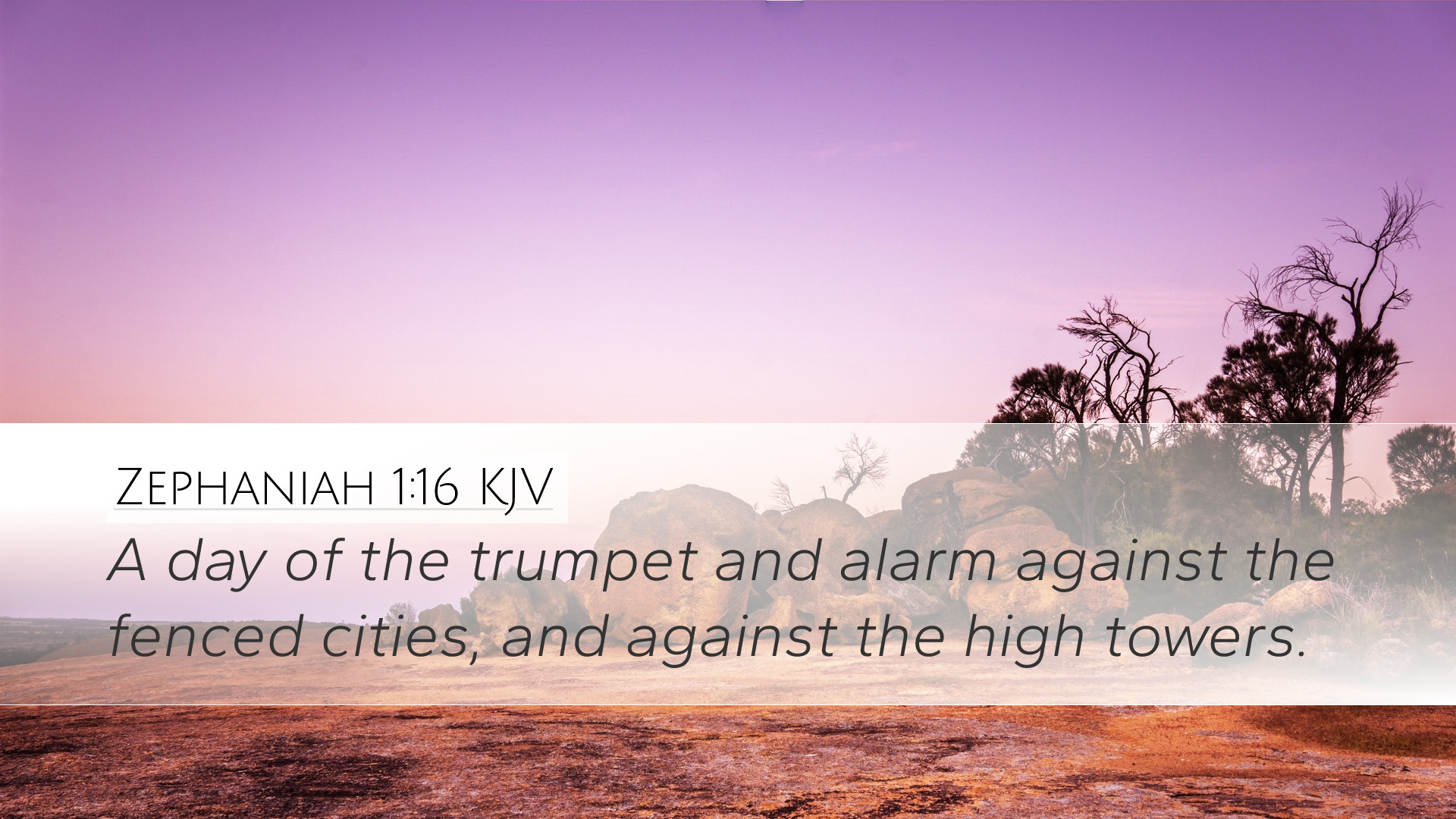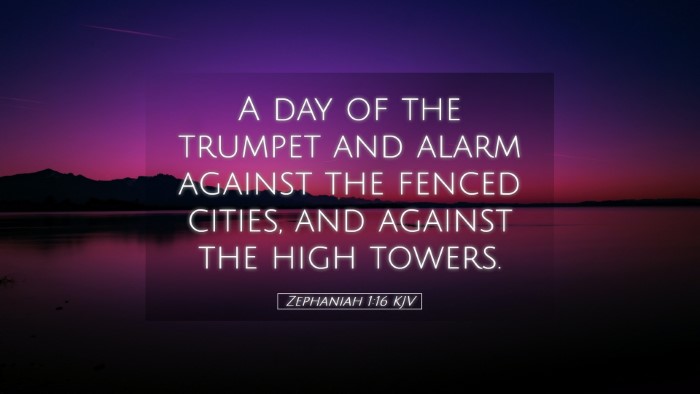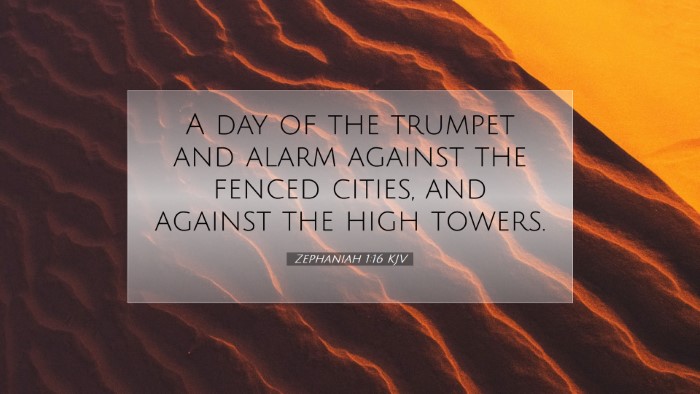Old Testament
Genesis Exodus Leviticus Numbers Deuteronomy Joshua Judges Ruth 1 Samuel 2 Samuel 1 Kings 2 Kings 1 Chronicles 2 Chronicles Ezra Nehemiah Esther Job Psalms Proverbs Ecclesiastes Song of Solomon Isaiah Jeremiah Lamentations Ezekiel Daniel Hosea Joel Amos Obadiah Jonah Micah Nahum Habakkuk Zephaniah Haggai Zechariah MalachiZephaniah 1:16
Zephaniah 1:16 KJV
A day of the trumpet and alarm against the fenced cities, and against the high towers.
Zephaniah 1:16 Bible Commentary
Commentary on Zephaniah 1:16
Verse: "A day of the trumpet and alarm against the fenced cities, and against the high towers."
Introduction
This verse, located in the book of Zephaniah, presents a vivid proclamation of impending judgment against Jerusalem and the surrounding nations. It serves as an important reminder to reflect on the consequences of sin and the call to repentance. The verse can be analyzed through multiple facets, including its historical context, theological implications, and the exhortation it provides to modern believers.
Historical Context
Zephaniah prophesied during the reign of King Josiah, a time marked by rampant idolatry and moral decay among the people of Judah. His message is both a warning and a call to repentance. The "trumpet" signifies an alarm for battle, symbolizing urgency and the nature of impending judgment against those who stand against God.
The Literary Structure
This verse is part of a larger passage that communicates the Day of the Lord—a recurring theme throughout the prophetic texts. The imagery used here reflects the seriousness and gravity of the coming judgment. The mention of "fenced cities" and "high towers" indicates fortified positions, suggesting that no place of refuge would be secure from the judgment of God.
Theological Insights
1. The Sovereignty of God: This verse emphasizes God's control over nations and cities. All human efforts to establish security will ultimately be futile in the face of divine judgment. The high towers that symbolize worldly power will come crashing down under God's decree.
2. Warning of Impending Judgment: The "trumpet and alarm" represent God's summons for accountability. Just as a trumpet calls soldiers to battle, so does God call His people to awaken from complacency and heed the warning of judgment. It creates a sense of urgency that is critical for understanding God’s character as one who desires repentance, yet enforces justice.
Commentary Insights
- Matthew Henry:
Henry emphasizes the notion of the Day of the Lord, highlighting that this alarm signifies imminent destruction. It serves as a wake-up call for the people of Judah, prompting them to confront their sinfulness. He notes that the “fenced cities” are a metaphor for earthly defenses that cannot withstand divine retribution.
- Albert Barnes:
Barnes connects this verse to the broader judgments described throughout the prophetic texts. He points out that the trumpet signifies both a call to arms and a declaration of God's impending judgment. Barnes elaborates on the concept of judgment heightened against those who might be perceived as safe, emphasizing that God's wrath knows no boundaries.
- Adam Clarke:
Clarke provides a rich interpretation of the "fenced cities" and "high towers," considering their relevance in times of siege and battle. His commentary reinforces that God is not indifferent to the states of these fortified places; He is actively involved in the unfolding of history and judgment. Clarke also underscores the duality of hope and warning, suggesting that if the cities repent, they may avert disaster.
Implications for the Believer
For pastors, students, theologians, and Bible scholars, Zephaniah 1:16 serves as both a warning and an encouragement. It challenges believers to evaluate their lives in light of God’s holiness and righteousness. The text underscores the importance of repentance and vigilance in our spiritual walk. The imagery of the trumpet should inspire a sense of urgency in our proclamation of the Gospel and in our personal faith journeys.
Conclusion
In summary, Zephaniah 1:16 stands as a poignant reminder of God’s sovereign authority over human affairs and the seriousness of divine judgment against unrighteousness. The call to repentance is clear and unambiguous. As believers, we are reminded that spiritual complacency can lead to dire consequences, and we are called to a life of vigilance, proclamation, and faithful stewardship of the truth of the Gospel.


